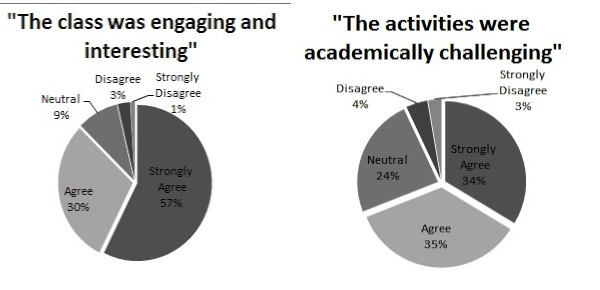Timmy Freese ’14, Michael Smerconish ’14: On the final day of the newly implemented J-Term program at Episcopal, Scholium sat down with Dr. T.J. Locke, Head of School, Dr. Delvin Dinkins, Head of Upper School, and Dr. Catherine Hall, Dean of Students, to gauge their opinions to the revolutionary installment.
For Hall, who has been at EA for ten years, J-Term “was unquestionably the most exciting two weeks of anything I’ve ever been a part of at Episcopal.”
Locke echoed Hall’s statement, noting that, “The first time you try something you hope it’s just good. Not great. You hope its good and that you’ll get better at it next year. But I was just blown away. Today was probably the best day I’ve ever had in my career in terms of seeing amazing things educationally.”
Indeed it seems as though the final day of J-Term served not only as a culmination of the efforts of each individual student, but also of the program as a whole. According to Hall, “From our vantage point we went into one room where something incredible was happening and then walked across the hall into another room where again something incredible was happening.”
One key result of J-Term that Locke enthusiastically emphasized is that, for many teachers, “this has changed the way they think about teaching.”

According to Dinkins, numerous schools across the country have already been asking about Episcopal’s experience with J-Term. “I visited several schools in Atlanta and they had heard that we were beginning J-Term and they were very curious about what we were doing…Two of those schools, Westminster and Pace Academy, had actually planned to launch something similar next year.”
One huge unforeseen benefit of J-Term, Locke explained, “was the involvement of the Lower School…They saw the excitement on Twitter, which led to one email and before you knew it kids were everywhere.” Locke added that perhaps the greatest example of the enthusiasm surrounding J-Term came through some of the anecdotes he heard from teachers. “Two separate courses told me that they had to literally force the students to have to stop what they were doing and go eat.”
In terms of future years, Hall believes that alumni will play a stronger role in J-Term as a whole. Although several EA parents and alums helped in some of this year’s courses, Hall shared that she thinks this involvement will grow exponentially as news of J-Term spreads to the greater EA community. “Our students will start to benefit from their expertise and the connections. I think the alumni will add a really neat layer next year.”
One of the more exciting aspects of J-Term for Locke was the lack of a grade. This meant, as Locke said, “that the students worked hard because they liked it, not in order to get the A.”
Indeed, as Dinkins reiterated, this program allows students “to learn for the sake of learning.”